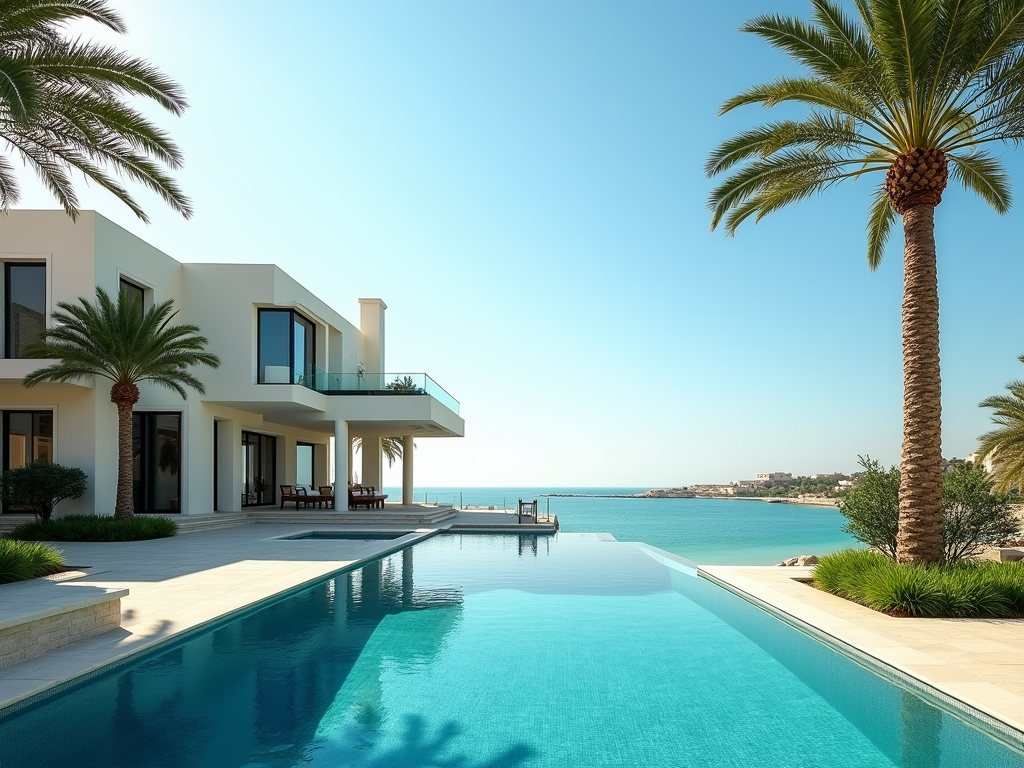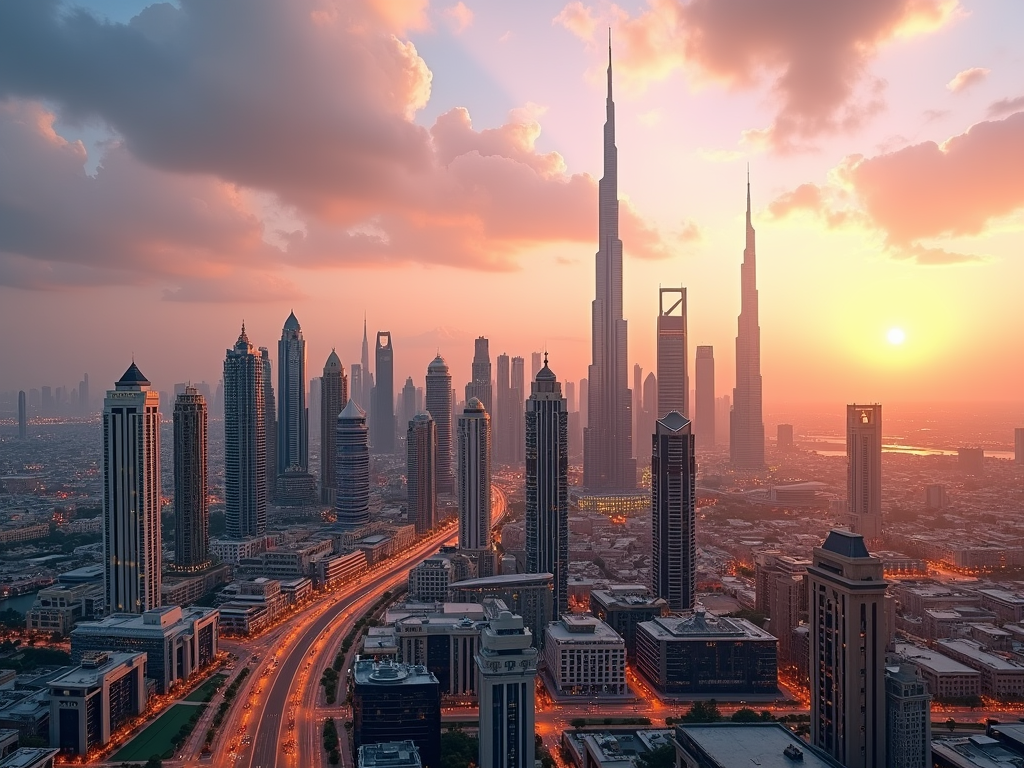The real estate market in Dubai stands as a complex yet fascinating entity, particularly when compared with other GCC cities like Abu Dhabi, Doha, and Riyadh. This article delves into key differences in property dynamics, investment opportunities, and market trends between Dubai and its GCC counterparts. While Dubai tends to attract a more diverse investor base and offers high rental yields, other cities provide unique advantages that cater to specific demographic needs. By exploring these aspects, we can gain a well-rounded understanding of Dubai’s position in the regional market.
Market Overview

Dubai’s real estate market is characterized by rapid growth and high demand, driven by a strategic location, tax-free environment, and a booming tourism sector. When we place Dubai side-by-side with its GCC neighbors, several factors starkly differentiate these cities. For instance, while Dubai has a global appeal due to its luxury lifestyle and advanced infrastructure, cities like Abu Dhabi focus more on stability and long-term investment potential. Below is a comparative overview of the factors influencing these real estate markets:
- Location: Dubai’s geographical positioning offers access to international markets.
- Regulatory Framework: The UAE offers a more flexible environment for foreign investors compared to other GCC cities.
- Market Maturity: Dubai’s real estate sector is more developed and competitive, offering a variety of investment options.
- Tourism Impact: The influx of tourists significantly drives rental yields in Dubai.
- Supply and Demand: Dubai faces varying trends in supply levels resulting from ongoing project developments.
Investment Opportunities in Dubai vs. Other GCC Cities

Dubai’s real estate market is widely recognized for its diverse investment opportunities, catering to both individual and institutional investors. The city offers various options including luxury villas, high-rise apartments, and commercial properties that appeal to investors across the globe. In contrast, other GCC cities like Doha and Riyadh are gradually evolving their real estate offerings but remain less attractive in terms of immediate returns. The following factors underscore Dubai’s investment allure:
- Luxury and High-End Property: Dubai continues to capture the upper-tier market with iconic developments.
- High Rental Yields: Investors can often achieve rental returns exceeding 7%.
- Freehold Ownership: Foreign nationals can purchase freehold property in designated areas, which is not as prevalent in other GCC markets.
- Innovative Development Projects: Mega-projects such as Dubai Creek Tower and The Mall of the World are attractive to local and international investments.
Market Trends and Forecasts
The real estate market in Dubai has shown resilience through economic fluctuations, driven by various market trends that set it apart from its GCC peers. Recent data suggests a growing trend toward sustainable developments and smart city initiatives, further enhancing property values. In contrast, while other GCC markets experience cyclical phases, Dubai’s growth trajectory remains relatively stable due to ongoing construction and projects. Critical market trends include:
- Smart Home Technologies: Integration of advanced technology in properties boosts market appeal.
- Eco-Friendly Developments: Increasing awareness about sustainability influences buyer preferences.
- Emergence of Co-Living Spaces: A response to the rising demand from millennials for affordable living solutions.
- Global Events: The upcoming Expo 2025 is expected to further stimulate real estate demand.
- Increased Domestic Investment: Emiratis are increasingly investing in the local market, adding to overall demand.
Challenges and Risks in Dubai’s Real Estate Market
While Dubai’s real estate market presents significant opportunities, it also carries inherent risks and challenges. These factors can impact investor confidence and market stability. For instance, regulatory changes or fluctuations in oil prices can affect demand. Furthermore, the oversupply of residential units has led to price corrections in some areas, creating uncertainty for short-term investors. Below are some of the challenges that potential investors should be aware of:
- Market Saturation: An influx of new properties can lead to oversupply issues.
- Economic Dependency: Fluctuations in oil prices can affect the overall economy, impacting the real estate market.
- Regulatory Changes: New regulations could impact foreign ownership rules and investment opportunities.
- Competition: Increasing competition from other GCC cities seeking to attract foreign investment.
- Market Sentiment: Investor sentiment can fluctuate based on global economic conditions.
Conclusion
Dubai’s real estate market is a dynamic and multifaceted arena that boasts unique advantages compared to other GCC cities. While the city continues to establish itself as a leading global hub for real estate investment through luxury developments and substantial returns, it must also navigate various challenges that could affect its overall attractiveness. By understanding market trends, investment opportunities, and prevailing risks, potential investors can make informed decisions about entering Dubai’s ever-evolving real estate landscape.
Frequently Asked Questions
1. What makes Dubai’s real estate market unique compared to other GCC cities?
Dubai’s unique blend of luxury properties, high rental yields, and a favorable regulatory framework attracts a diverse international investor base, setting it apart from other GCC cities.
2. Are there significant risks in investing in Dubai real estate?
Yes, potential risks include market saturation, regulatory changes, and economic dependency on oil prices, which could impact property values.
3. What types of properties are most in demand in Dubai?
Luxury apartments, villas, and commercial properties are highly sought after due to the influx of expatriates and tourists.
4. How does rental yield in Dubai compare to other GCC cities?
Dubai typically offers rental yields that exceed 7%, which is generally higher than what is seen in other GCC cities like Riyadh and Doha.
5. What are the upcoming developments to watch in Dubai’s real estate sector?
Key developments like Dubai Creek Tower and the Mall of the World, alongside the Expo 2025, are projected to enhance the market’s attractiveness.
